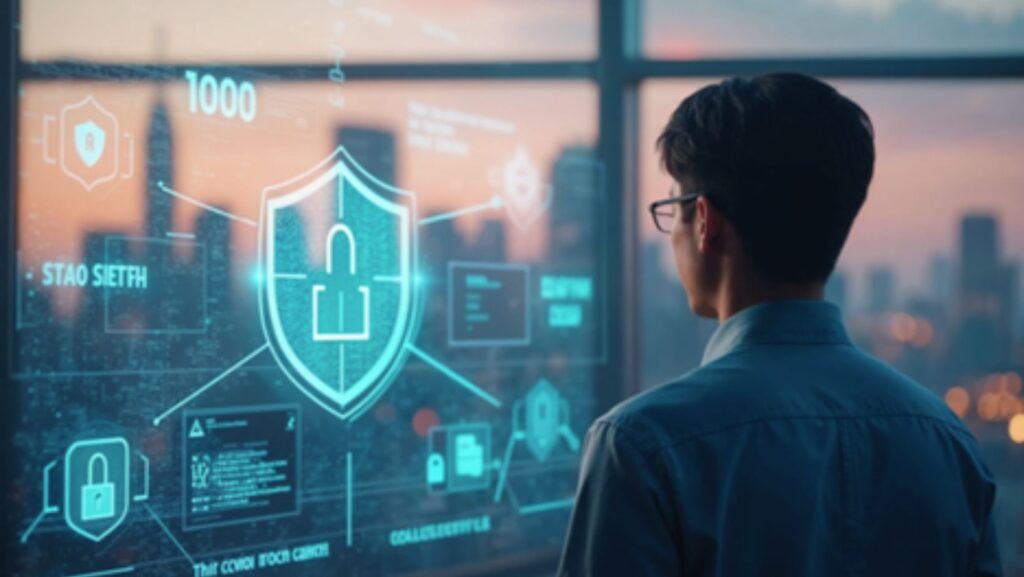
 As the digital world grows, cybersecurity has evolved far beyond firewalls and anti-virus software. It’s merging with physical security in ways that few anticipated. Surprisingly, locksmiths—once seen solely as keepers of keys and masters of mechanical locks—are now entering this digital frontier. With the rise of smart home systems, digital locks, and interconnected devices, locksmiths are becoming essential players in protecting spaces that rely as much on secure codes as they do on sturdy locks. In many ways, locksmiths are evolving into digital security guards for our homes and businesses, adding a new layer of protection to address the unique vulnerabilities of our increasingly connected world.
As the digital world grows, cybersecurity has evolved far beyond firewalls and anti-virus software. It’s merging with physical security in ways that few anticipated. Surprisingly, locksmiths—once seen solely as keepers of keys and masters of mechanical locks—are now entering this digital frontier. With the rise of smart home systems, digital locks, and interconnected devices, locksmiths are becoming essential players in protecting spaces that rely as much on secure codes as they do on sturdy locks. In many ways, locksmiths are evolving into digital security guards for our homes and businesses, adding a new layer of protection to address the unique vulnerabilities of our increasingly connected world.
Let’s see how locksmiths are rising to meet the challenges of a tech-driven era, blending physical and digital security techniques to keep us safe.
The Blurred Lines Between Physical and Cybersecurity
In today’s world, protecting assets means much more than a well-made lock and key. The Internet of Things (IoT) has made everyday items like doors, cameras, and even refrigerators “smart,” connecting them to the internet—and, by extension, making them potential cyber targets. Locksmiths, whose services were once focused purely on physical security, now find themselves addressing threats that originate in the digital world. This evolution means understanding the overlap between cyber risks and physical vulnerabilities, as smart security systems can face similar digital threats to traditional online accounts.
Just as hackers target digital accounts and financial systems, cybercriminals are increasingly setting their sights on physical spaces through devices like smart locks and cameras. To combat this, locksmiths have had to adapt, integrating cybersecurity principles into their practice.

Locksmiths now consider encryption protocols, multi-factor authentication, and secure software management as essential components of modern security. By incorporating these digital techniques, locksmiths are closing the gap between physical protection and digital vulnerability.
Smart Locks: A New Frontier in Locksmithing
Smart locks represent a transformative leap in locksmithing. Unlike traditional locks that rely on metal keys and tumblers, smart locks use Wi-Fi, Bluetooth, and even biometric systems. While these locks offer unprecedented convenience—allowing users to open doors remotely or monitor access logs—they also introduce new vulnerabilities. A cyber-savvy intruder could potentially exploit these features from a distance, bypassing the need for physical access to break in.
Locksmiths are rising to the challenge by incorporating cybersecurity protocols into smart lock installations. They recommend models with strong encryption, encourage regular software updates, and often suggest multi-layered authentication to help clients secure their systems. By prioritizing security over convenience, locksmiths ensure that digital tampering is minimized. For instance, locksmiths may advise using locks with encrypted key access, which require unique, randomized codes for each access attempt, making unauthorized access much more difficult. This approach creates a comprehensive security barrier, blending physical durability with digital resilience.
Learning from Cybersecurity Practices in Gaming
Interestingly, locksmiths are looking to industries like gaming for inspiration in tackling digital security threats. The gaming world has long been a target for hackers, with valuable in-game assets, personal data, and financial transactions all at risk. To protect against these threats, gamers use strong passwords, two-factor authentication, and vigilant monitoring. These protocols have made gaming one of the most cybersecurity-conscious industries, and locksmiths are now adopting similar practices to safeguard smart locks and IoT security devices.
For example, a locksmith setting up a digital lock system might implement regular software updates, encrypted data transfers, and secure user authentication processes—techniques widely used in gaming. This transfer of knowledge from gaming to locksmithing helps to safeguard physical spaces against digital intrusion, providing property owners with peace of mind. By implementing advanced security measures from other sectors, locksmiths are not only protecting assets but are also elevating their role in modern security to keep pace with the technological curve.
Artificial Intelligence: Predictive Security in the Locksmithing World
Artificial intelligence (AI) and machine learning are increasingly making their way into the locksmith industry, bringing predictive capabilities that were once science fiction into the world of home security. In gaming, AI has revolutionized player experiences by detecting cheating patterns, predicting in-game behaviors, and enhancing user engagement.

For locksmiths, AI brings similar advantages, allowing smart locks to learn from user behavior and alert homeowners to unusual activity patterns that may signal a security risk.
AI-enabled smart locks can now detect potential breaches, such as repeated failed access attempts, and alert users through their smartphones or home systems, much like how gaming systems monitor for suspicious login attempts. This predictive layer of security allows locksmiths to offer cutting-edge protection to their clients with AI systems that can learn a user’s typical habits and flag anomalies before they escalate into actual threats. By staying ahead of potential issues, locksmiths are embracing a proactive approach to security that keeps them ahead of evolving cyber threats.
Conclusion: A New Era for Locksmiths in Digital Security
The fusion of physical and digital security is pushing locksmiths to adapt to a changing landscape. By integrating cybersecurity strategies—some even inspired by fields like gaming—locksmiths are evolving from guardians of doors and keys to crucial players in digital security. This new role means that locksmiths must stay informed about the latest tech, from encryption practices to AI-driven alerts, so they can offer effective, comprehensive protection for our interconnected lives.
As our reliance on technology grows, so does the need for locksmiths skilled in digital security. The role of the locksmith has transformed into something broader and more sophisticated, ensuring that our homes and businesses are secure in both the physical and digital realms. This shift marks a new era for the locksmithing industry, where security in a connected world requires a blend of time-tested expertise and forward-looking digital solutions.











